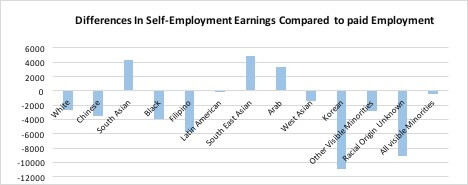There’s no greater evidence of Canada’s lop-sided immigration policies than the anecdotes of city cab drivers who come qualified to conduct complex surgeries or teach university-level courses. Any discussion of immigration in this country inevitably leads to conversations around neuro-surgeons driving taxis or PhD holders spending countless hours behind the wheel because they cannot find jobs in their field.
Now, we have a government study that confirms that far too many cab drivers are qualified far beyond the Skill Level C required for their profession: these jobs generally require education at the secondary level (high school) and some job-specific training (based on the National Occupational Classification defined by Human Resources and Skills Development Canada, HRSDC). As reported by Lexbase, a monthly immigration newsletter, Citizenship and Immigration Canada (CIC) commissioned an internal study entitled “Who Drives a Taxi in Canada?” surveying 50,110 respondents.
Not surprisingly, the numbers were roughly equal for the Canadian-born and immigrants among cab drivers. However, as the level of academic qualifications progressed, the number of Canadian-born tapered, while immigrant numbers swelled. At the highest level surveyed, i.e., at the doctoral level (Doctor of Medicine, MD, or Doctor of Philosophy, PhD, or equivalent), the study found 55 who were Canadian-born and 200 who immigrated to Canada.
One PhD behind the wheel of a cab is one too many, and this has been going on for years, and yet little has been done to address it. The CIC study also points to countries whose academic qualifications are most dubious or discounted in the eyes of Canadian employers: India, Pakistan, Lebanon and Iran. It should therefore come as no surprise that one of every three immigrant taxi drivers was born in either India or Pakistan.
Lexbase also shared the study with the Globe and Mail, which had an editorial titled “Overqualified immigrants really are driving taxis in Canada.”
The trend is clear: driving taxis is becoming a largely immigrant profession. There’s a similar trend in other Skill Level C and D professions, ones that need minimal education and formal training. Typically, immigrants get into these jobs despite having qualifications that far exceed the basic requirements, hoping to get an entrée into their chosen fields once they gain some “Canadian experience.” Unfortunately, though, given the pressures of feeding a family and paying the bills, these temporary vocations of necessity become professions for life.
That’s a catastrophe for Canadian prosperity, hobbling not only recent immigrants, but perhaps their future generations as well. Any effort to match academic qualifications to skills and skills to jobs is worth pursuing.




